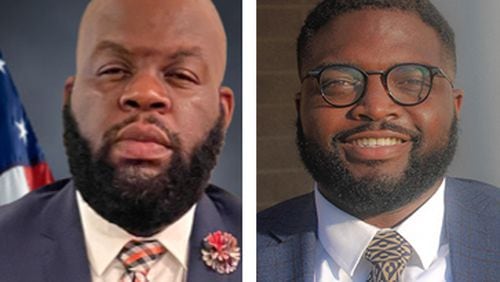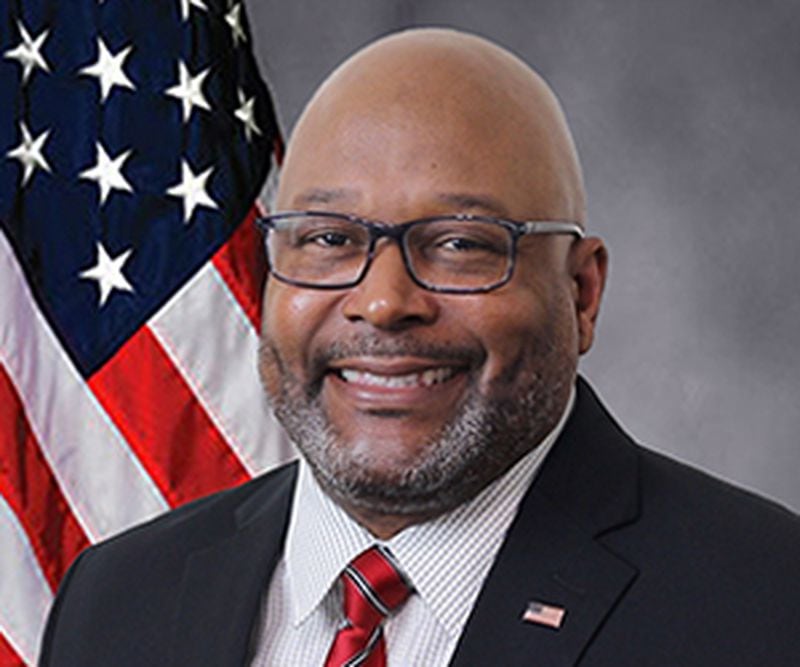Two city council members in Camilla, a city in southwest Georgia, have lost their attempt to overturn a trial court’s order ousting them from office on the basis that they aren’t city residents and have no authority to serve.
Appeals by council members Corey B. Morgan and Venterra Pollard were rejected Thursday by a three-judge panel of the Georgia Court of Appeals.
The panel upheld a July 20 ruling by a trial court judge that Morgan and Pollard cannot serve as city council members as they don’t meet the residency requirements of state law and the city’s charter.
The panel’s ruling is the latest twist in a saga that has included several challenges to the council members’ qualifications in the small majority-Black city of about 5,000 residents.
The six-member Camilla city council has three Black members and three who are white. Morgan and Pollard are both Black, as is the city’s mayor, and the three African American members of council and mayor often vote as a majority.
Both Morgan and Pollard were elected to seats representing District 1 in Camilla, which is about 30 miles south of Albany. Council members are required to have lived in the district they represent for the year prior to being elected, and to continue residing in the district while on the council.
Morgan allegedly lived in Pelham, about nine miles south of Camilla, during the relevant time period, case records show. And Pollard allegedly resided in Albany.
Neither Morgan nor Pollard responded to questions about the ruling Thursday. They remain on the council, with an opportunity to seek review by the Georgia Supreme Court.
In July, Mitchell County Superior Court Senior Judge Gary C. McCorvey ruled that Morgan and Pollard are not Camilla residents. The ruling vacated Morgan and Pollard’s seats, but the decision was effectively on hold pending their appeals.
Both the trial judge and the panel of appellate judges found Morgan and Pollard had deliberately stalled the litigation challenging their eligibility to serve, evaded questions about their residences, and destroyed evidence of their living arrangements. The council members appeared to have staged bedrooms in relatives’ homes within the district they represent that they purported to live in, the judges said.
The July order ousting the council members from office came in the form of a default judgment against them, as punishment for how they responded to the challenge brought by Camilla residents David Cooper and Joe Bostick.
Writing for the appellate panel, Court of Appeals Judge Trea Pipkin said Morgan and Pollard, who chose to represent themselves in the case, were given ample opportunity to avoid the default judgment.
When questioned during their separate depositions about where they resided, Morgan and Pollard often said “I don’t keep a record of that,” Pipkin noted.
“Clearly, as set out in the trial court’s order, (Morgan and Pollard’s) actions amounted to more than merely violating the spirit of the law,” Pipkin wrote.
Morgan’s grandmother testified that she did not recognize the items in a photograph Morgan submitted as proof of his bedroom at her District 1 home, Pipkin said. Similarly, Pollard’s sister testified that she did not recognize the items in a photograph supposedly taken in Pollard’s bedroom at her District 1 house, the panel noted.
Camilla Mayor Kelvin Owens told The Atlanta Journal-Constitution that he believes Morgan and Pollard are District 1 residents and qualified to serve on the council. Owens said the default judgment against Morgan and Pollard prevented them from proving to a jury their eligibility to serve, and he expects they will seek review by the state Supreme Court.
“I respect these men,” Owens said Thursday. “They have been awesome legislators for the city of Camilla. I support them 100%.”
Credit: Courtesy City of Camilla
Credit: Courtesy City of Camilla
Owens said Morgan was just re-elected to a second term of four years, winning 79% of the vote against two challengers. Pollard, whose second term ends in December 2025, is the second-longest serving member of the council, the mayor said.
A prior challenge to Morgan’s re-election bid based on his residency was rejected by the city’s elections superintendent, who determined that Morgan lives in District 1, Owens said. He said that decision was upheld by the Mitchell County Superior Court, and an associated appeal was dismissed by the state Supreme Court.
Owens said the first challenge to Morgan and Pollard’s residency came well into their tenure, once they had formed a “progressive African American” voting majority on the council, which comprises six members and the mayor. Challengers Cooper and Bostick are not District 1 residents, Owens said.
The city did not fund Morgan and Pollard’s involvement in the legal fight, the mayor said. He said the only involvement the city had in the case was filing an appellate brief supporting the effective hold on the trial judge’s July order.
Christopher S. Cohilas, the lead attorney for Cooper and Bostick, told the AJC that his clients can seek to have Morgan and Pollard held in contempt of the July order once the appeals process ends, if the council members continue to serve. Cohilas said the ruling by the Georgia Court of Appeals is a “tremendous victory” for the residents of Camilla, “who have lived under the tyranny of a pattern of corrupt decisions.”
“This whole thing is farcical,” Cohilas said of Morgan and Pollard’s assertion that they reside in District 1. “When you’re making decisions regarding the expenditure of public funds — whether or not to spend reserves, whether or not to raise people’s light bill — and you don’t actually have to pay and deal with the consequences of your own vote, that’s a really big deal.”
About the Author








